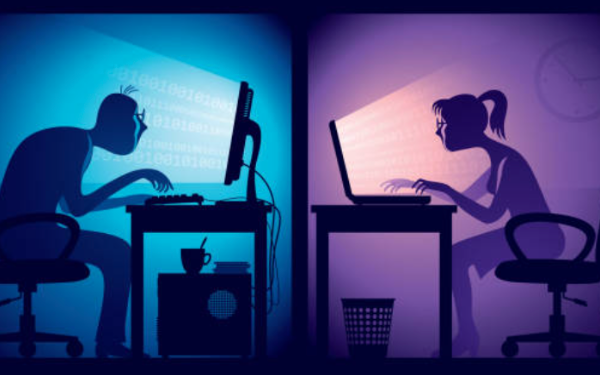Collaborative Dishonesty is A Thing!
Ever heard of “collaborative dishonesty”? Neither did I until recently.
With all the talk about shared purpose, teamwork and collaboration research finds that people working together (collaborating) often “scheme” to put profits ahead of telling the truth.
Do you remember “Dieselgate”? In 2015, Volkswagen, the world’s biggest automaker, cheated on diesel emissions tests. It had installed software on millions of cars to make the Environmental Protection Agency’s emissions testers believe the cars were environmentally friendly.
Dieselgate is one example of what researchers call “collaborative dishonesty.” A settlement required Volkswagen to spend $14.7 billion to compensate vehicle owners and invest in pollution mitigation. Regardless, there are over 475,000 Volkswagen vehicles with excess emissions still on US roads.
This is not shocking when we continue to feed unhealthy systems of growth, efficiency and productivity. The indicators of financial wealth for companies also drive behavior of some of the people working for them. Despite signing codes of business conduct, unethical practices can be found in many organizations when people need to make their numbers and fuel growth.
The Dark Side of Collaborative Dishonesty
A study of dishonesty found that “participants lie more when their partners lie—and lying increases as tasks progress.” The authors share their observations and findings: “We present the first meta-analysis on collaborative dishonesty—when groups can lie to increase the group’s profits—covering 87,771 decisions made by 10,923 people engaging in 21 different experimental tasks.
Results reveal various situational and personal factors shape collaborative dishonesty, including, for example, that group members affect each other’s behavior over time. We propose that prosocial and honest-image concerns drive collaborative dishonesty.”
An interesting finding from the study is that it is common to find unethical behavior in collaboration, but there are “limits to the amount of lying that occurs.” Groups tend to lie because it is more financially profitable than telling the truth.
Time to Shine Our Light?
If Volkswagen engineers were more aware of how pollution wreaks havoc on society and the environment, would they have been less willing to manipulate the engines? We will never know.
Isn’t it interesting that we are now studying the level of dishonesty in group dynamics and collaboration so we can “design environments in which honesty is encouraged. And dishonesty is tamed”?
Isn’t it time for us to take accountability and responsibility instead of taming collaborative dishonesty?
In the words of Machiavelli, “The reason there will be no change is because the people who stand to lose from change have all the power. And the people who stand to gain from change have none of the power.”
Isn’t it time for us to change this story? Don’t we have enough evidence and proof that our systems are collapsing? Isn’t this an opportunity to build a saner and more humane experience for all of us?
Let’s not continue to replace one fragmented and broken system with another fragmented and broken system. This is a time of discovering and integrating many relevant truths and possible directions, with diverse approaches and new (and very old) values coming into the foreground.
Our opportunity is to practice radical honesty at our own pace and work in places that allow us to bring our whole selves to our work. It is possible. And it’s up to each of us to choose our way of life; no taming required.
According to Rudolf Steiner, “Everyone who tells the truth actually promotes the evolution of humanity and everyone who lies, obstructs it.
Therefore there is this occult law: Seen with the eyes of Spirit, a lie is a murder. Not only does it kill an astral form, but it is also self-murder.”


